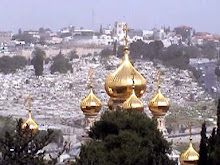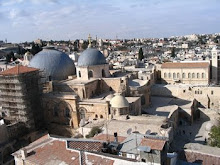Wednesday June 11 2008
Archaeologists claimed yesterday to have found the world's oldest church dating from shortly after Christ's crucifixion.
If tests confirm that it dates back to between AD 33 and AD 70, as the archaeologists claim, it would make it the earliest known place of Christian worship by around 200 years.
According to a report in the 'Jordan Times' newspaper, a very early underground church was found beneath the ancient Saint Georgeous Church, which itself dates back to AD 230, in Rihab, northern Jordan, near the Syrian border.
"We have uncovered what we believe to be the first church in the world, dating from AD 33 to 70,'' Abdul Qader al-Husan, the head of the Rihab Centre for Archaeological Studies, said.
Disciples
"We have evidence to believe this church sheltered the early Christians -- the 70 disciples of Jesus Christ.''
A mosaic found in the church describes these Christians as "the 70 beloved by God and Divine''. Mr Husan said they were believed to have fled persecution in Jerusalem and founded churches in northern Jordan. He cited historical sources that suggest they both lived and practised religious rituals in the underground church.

A Jordanian worker cleans a mosaic floor near the broken tombstones of early Christian graves in the cemetery of Saint Georgeous church in the northern Jordanian town of Rihab on June 10, 2008 Credit: -/AFP/Getty Images
There is no clear holder of the title of oldest Christian church with various sites claiming the honour.
In 2005, Israeli archaeologists claimed to have found the earliest Christian church when they uncovered a floor mosaic dating from the first part of the third century. It was found inside the perimeter fence of a top-security prison in Megiddo or, to use its ancient name, Armageddon, where, according to the New Testament, the final battle between good and evil will be fought.
The bishop deputy of the Greek Orthodox archdiocese, Archimandrite Nektarious, described the Rihab discovery as an "important milestone for Christians all around the world''.
Researchers recovered pottery dating back to between the third and seventh centuries, which they say suggested that these first Christians and their followers lived in the area until late Roman rule. Inside the cave there are several stone seats which are believed to have been for the clergy and a circular shaped area, thought to be the apse. Rihab is home to 30 churches and Jesus and his mother are believed to have passed through the area, Mr Husan said. (©Daily Telegraph, London).
- Tim Butcher in Jerusalem
Sourse: Independent.ie














